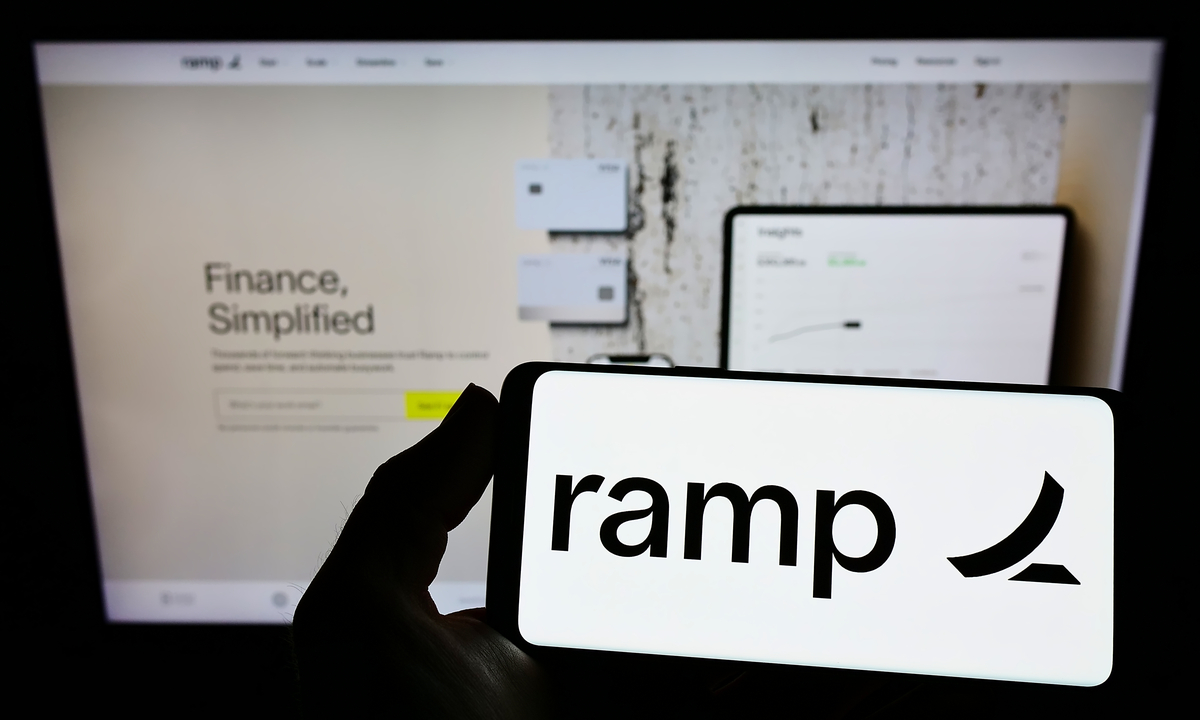Ramp is an innovative fintech startup that is reshaping the landscape of corporate finance. Founded in 2019 by Eric Glyman and Karim Atiyeh, Ramp aims to revolutionize how businesses manage their financial operations and expenses. With a focus on providing intelligent automation, cost savings, and real-time visibility, Ramp has quickly emerged as a disruptive force in the world of corporate finance.
Ramp offers a comprehensive suite of financial management tools that empower businesses to gain better control over their expenses, optimize spending, and improve overall financial health. The company’s platform leverages cutting-edge technology, including machine learning and artificial intelligence, to automate tedious financial tasks and provide actionable insights in real-time.
One of Ramp’s key offerings is its expense management solution, which provides businesses with a centralized platform to track, categorize, and analyze their expenses. The platform integrates with corporate credit cards, bank accounts, and accounting systems, allowing for seamless data synchronization and eliminating the need for manual data entry. With intelligent automation and real-time data, businesses can gain a holistic view of their expenses, identify trends, and make data-driven decisions to reduce costs and increase efficiency.
In addition to expense management, Ramp also offers features such as spend management, vendor management, and budgeting tools. These functionalities enable businesses to set spending limits, control purchasing behavior, negotiate better terms with vendors, and establish budgets for different departments or projects. By providing granular visibility into spending patterns and real-time alerts, Ramp helps businesses proactively manage their finances and avoid overspending.
Furthermore, Ramp takes a unique approach to corporate card programs. The company offers a corporate card that is designed to maximize savings and transparency. The card integrates with the Ramp platform, allowing businesses to gain real-time insights into transactions, set spending limits, and automate expense reconciliation. By leveraging advanced analytics and algorithms, Ramp’s corporate card helps businesses optimize cash flow, reduce wasteful spending, and streamline expense reporting.
Ramp’s disruptive approach to corporate finance has gained significant traction and attracted a large customer base. The company serves businesses of all sizes, from small startups to enterprise-level organizations, across various industries. Its user-friendly interface, automation capabilities, and cost-saving features have resonated with businesses seeking to streamline their financial operations and improve their bottom line.
With a team of experienced professionals and a strong network of investors, Ramp is well-positioned for growth and innovation in the corporate finance space. The company has secured substantial funding from renowned venture capital firms, including Founders Fund and Coatue Management, among others. This financial backing, combined with its customer-centric approach and commitment to technological advancement, positions Ramp as a key player in reshaping how businesses manage their finances.
Overall, Ramp is revolutionizing corporate finance by providing businesses with intelligent automation, real-time insights, and cost-saving features. With its comprehensive platform and user-centric approach, Ramp is empowering businesses to take control of their financial operations, optimize spending, and drive long-term financial success.
Founding Story and Founders of Ramp
Ramp was founded in 2019 by Eric Glyman and Karim Atiyeh. The founders recognized the challenges faced by businesses when it comes to managing expenses and optimizing spending, and they set out to simplify and streamline financial operations for organizations.

Eric Glyman, co-founder and CEO of Ramp, brings extensive experience in the finance and technology sectors. Prior to Ramp, Glyman co-founded Paribus, a startup focused on consumer savings in e-commerce, which was later acquired by Capital One. His background also includes working as a senior product manager at Google and as an associate at Bridgewater Associates, one of the world’s largest hedge funds. Glyman’s deep understanding of financial technology and his passion for improving financial processes have been instrumental in shaping Ramp’s vision.
Karim Atiyeh, co-founder and CTO of Ramp, has a strong technical background and a track record of building successful software platforms. Before Ramp, Atiyeh served as a software engineer at Google, where he worked on various projects, including Google Photos. He also co-founded and led Hyperpublic, a location-based data platform that was acquired by Groupon. Atiyeh’s expertise in software development and data analytics has been pivotal in the development of Ramp’s innovative financial management tools.
Together, Glyman and Atiyeh combined their complementary skills and expertise to launch Ramp with the aim of transforming how businesses approach corporate finance. They assembled a team of talented professionals, including engineers, product managers, and finance experts, to build a platform that simplifies financial operations, automates repetitive tasks, and provides businesses with real-time insights to optimize spending.
Since its founding, Ramp has experienced rapid growth and garnered significant attention in the fintech industry. The company has attracted substantial investments from prominent venture capital firms, including Founders Fund, Coatue Management, and Redpoint Ventures, among others. This financial backing has enabled Ramp to scale its operations, expand its product offerings, and continue driving innovation in the corporate finance space.
As founders, Glyman and Atiyeh have been instrumental in shaping the company’s strategic direction, product development, and customer-focused approach. Their combined expertise in finance, technology, and entrepreneurship has positioned Ramp as a disruptive force in the industry, challenging traditional corporate finance practices and offering businesses a more efficient and cost-effective way to manage their finances.
Glyman and Atiyeh’s shared vision, passion for innovation, and commitment to delivering value to customers have been instrumental in driving Ramp’s success. With their leadership, the company continues to push boundaries, develop new features, and expand its customer base, solidifying its position as a leading player in the corporate finance sector.
Products and Features of Ramp
Ramp offers a range of products and features that empower businesses to streamline their financial operations, optimize spending, and gain real-time insights into their expenses. Let’s delve into the key offerings provided by Ramp:
Expense Management:
- Automated Expense Tracking: Ramp’s platform seamlessly integrates with corporate credit cards and bank accounts, automating the process of expense tracking. It categorizes expenses, captures receipt information, and eliminates manual data entry, saving time and reducing errors.
- Real-time Visibility: Businesses can monitor their expenses in real-time through the Ramp dashboard. It provides a comprehensive view of spending trends, vendor insights, and transaction details, enabling businesses to gain better control over their expenses.
- Customizable Expense Policies: Ramp allows businesses to set custom spending limits and policies to enforce budget control and ensure compliance. Administrators can configure spending rules and receive real-time alerts for policy violations.
Smart Savings:
- Automated Savings Recommendations: Ramp’s platform analyzes spending patterns and identifies opportunities for cost savings. It provides personalized recommendations on potential savings, such as negotiating better vendor terms or switching to more cost-effective alternatives.
- Bulk Discounts: Ramp leverages its partnerships with vendors to offer bulk discounts on common business expenses, such as software subscriptions, travel bookings, and office supplies. Businesses can take advantage of these discounts to reduce costs.
Vendor Management:
- Vendor Insights: Ramp provides detailed vendor insights, allowing businesses to evaluate vendor performance, track spending patterns, and identify potential cost-saving opportunities.
- Vendor Payments: The platform enables businesses to streamline vendor payments by centralizing payment processing and offering flexible payment options, such as virtual cards and ACH transfers. This simplifies the payment process and enhances efficiency.
Budgeting and Forecasting:
- Real-time Budget Tracking: Ramp offers real-time budget tracking, allowing businesses to monitor their spending against predefined budgets. The platform provides visualizations and alerts to help businesses stay on track and avoid overspending.
- Accurate Forecasting: With access to real-time spending data, businesses can generate accurate financial forecasts and make data-driven decisions. Ramp’s platform provides insights into historical spending trends, enabling businesses to plan budgets more effectively.
Analytics and Reporting:
- Data Visualization: Ramp presents financial data in intuitive visualizations, including charts and graphs. This enables businesses to quickly understand spending patterns, identify trends, and make informed decisions.
- Customizable Reports: The platform allows businesses to generate custom reports tailored to their specific needs. Reports can include expense breakdowns, vendor insights, policy compliance, and other relevant financial metrics.
Corporate Cards:
- Intelligent Corporate Cards: Ramp offers corporate cards designed to simplify expense management. The cards integrate seamlessly with the Ramp platform, providing real-time transaction data and enabling automated expense categorization and reconciliation.
- Spending Controls: Businesses can set spending limits, category restrictions, and merchant-specific controls on Ramp’s corporate cards, ensuring compliance with budgetary constraints and expense policies.
Overall, Ramp’s products and features provide businesses with a comprehensive suite of tools to manage expenses, optimize spending, and gain valuable insights into their financial operations. By leveraging automation, real-time data, and smart recommendations, Ramp empowers businesses to make informed decisions, reduce costs, and improve their overall financial health.
Business Model of Ramp
Ramp operates on a business model that combines technology, financial partnerships, and revenue streams to deliver its innovative financial management solutions. Let’s explore the key components of Ramp’s business model:
Platform as a Service (PaaS): Ramp provides its financial management platform as a service, offering businesses a comprehensive suite of tools and features to streamline their financial operations. The platform leverages automation, data analytics, and intelligent recommendations to help businesses optimize spending, track expenses, and gain real-time insights into their financial health.
Subscription-based Model: Ramp generates revenue through a subscription-based model. Businesses pay a monthly or annual fee to access and utilize the Ramp platform. The subscription fee is typically based on the size and needs of the organization, allowing businesses of different sizes to benefit from Ramp’s financial management solutions. The subscription model ensures a consistent revenue stream for the company and aligns with the ongoing support and value provided to customers.
Corporate Card Program: Ramp offers its own corporate cards to businesses, which integrate seamlessly with its platform. The corporate card program serves as an additional revenue stream for Ramp. The company earns revenue through interchange fees charged on transactions made with the Ramp corporate cards. These fees are typically a percentage of the transaction value, and they contribute to Ramp’s overall revenue generation.
Partner and Vendor Relationships: Ramp has established partnerships with vendors and suppliers in various industries. Through these partnerships, Ramp is able to negotiate bulk discounts and favorable terms for its customers. When businesses take advantage of these vendor relationships and make purchases through Ramp’s platform, the company earns revenue through referral fees or commission-based arrangements with the vendors.
Data Analytics and Insights: Ramp leverages the data collected from its platform to generate valuable insights for businesses. By analyzing spending patterns, identifying cost-saving opportunities, and providing personalized recommendations, Ramp helps businesses optimize their expenses and make informed financial decisions. While data analytics and insights are primarily a value-add for customers, Ramp can also leverage anonymized and aggregated data to generate additional revenue through data licensing or partnerships with research organizations.
Strategic Partnerships: Ramp collaborates with financial institutions, payment processors, and technology partners to enhance its offering and provide a seamless user experience. These partnerships allow Ramp to integrate with existing financial systems, offer secure payment processing, and leverage the infrastructure of established financial institutions. In some cases, these partnerships may also involve revenue-sharing arrangements or referral fees, contributing to Ramp’s revenue streams.
Overall, Ramp’s business model centers around providing a comprehensive financial management platform as a service. By offering subscription-based access, corporate cards, value-added partnerships, and data-driven insights, Ramp generates revenue while helping businesses optimize their financial operations and improve their bottom line.
Growth of Ramp over the years
Ramp has seen significant growth in recent years, both in terms of the number of customers it serves and the total annual payments volume it processes.
Here are some of Ramp’s growth numbers:
- Customers: In 2020, Ramp had 1,000 customers. By 2023, the company had grown to over 15,000 customers.
- Annual payments volume: In 2020, Ramp processed $1 billion in annual payments volume. By 2022, the company had processed over $5 billion in annual payments volume.
- Revenue: Ramp’s revenue grew by over 10x in 2022.
- Employees: Ramp has over 400 employees.
- Funding: Ramp has raised over $750 million in funding.
Ramp’s growth is being driven by a number of factors, including:
- The increasing demand for corporate spend management solutions.
- The company’s strong product offerings, which include a wide range of features that help businesses manage their expenses more efficiently.
- Ramp’s focus on customer satisfaction. The company has a customer satisfaction score of 98%.
- Ramp’s commitment to innovation. The company is constantly adding new features and capabilities to its platform.
Ramp is a rapidly growing company that is well-positioned to continue its growth in the years to come. The company’s strong product offerings, focus on customer satisfaction, and commitment to innovation are all factors that will help it to maintain its growth momentum.
Here are some additional growth numbers for Ramp:
- Transaction volume: Ramp’s transaction volume grew by over 400% in 2022.
- Cardholder growth: Ramp’s cardholder growth was over 15x in 2022.
- Market share: Ramp’s market share in the corporate spend management market is estimated to be over 10%.
Ramp is a leading player in the corporate spend management market. The company’s strong growth numbers and market share are a testament to its success. Ramp is well-positioned to continue its growth in the years to come.
Also Read: Tipalti – Startup Story, Features, Business Model & Growth
To read more content like this, subscribe to our newsletter
Go to the full page to view and submit the form.


